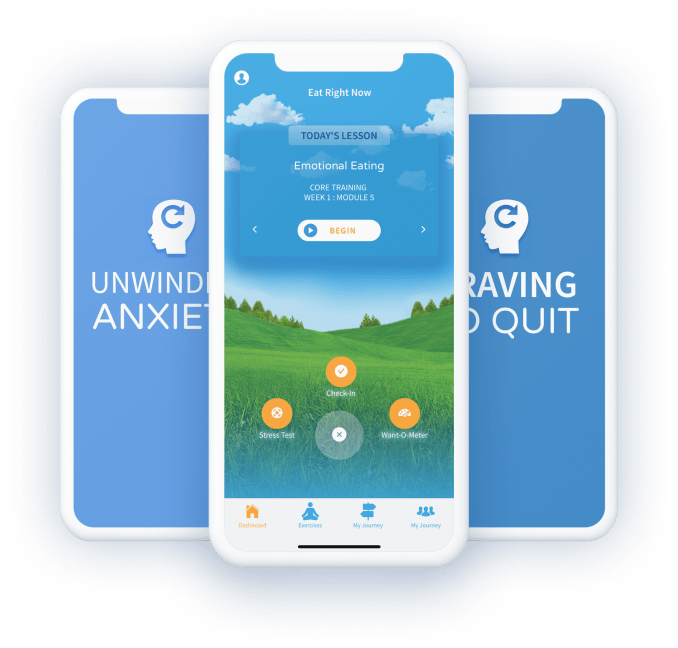If you have trouble falling asleep, you aren’t alone. In fact, an estimated 50 to 70 million adults suffer from one of the various sleep disorders in the United States, such as insomnia. Fortunately, there are some simple changes you may be able to make to change your sleeping habits and improve your chances of getting quality sleep at night.
Exercise Moderately
Gentle exercise can help your system clean out stress hormones when they occur. Seeking a form of gentle exercise during the daytime may also help use up excess energy that could keep you awake and feeling like you need to do more when bedtime rolls around.
Note, however, that really intense exercise, such as High Intensity Interval Training or HIIT, can actually increase the stress-related hormones your body releases. If you enjoy doing intense exercise, schedule it early in your day so your body can expel the stress hormones again in plenty of time before bed.
Welcome the Light During the Day
Spending time in the sunshine during the day helps get your circadian rhythm back on track. Sunlight also produces a reaction that creates vitamin D when it comes into contact with the oils on your bare skin. Vitamin D has been associated with a vast number of bodily functions, including mood stabilization and hormone balance. Deficiency in vitamin D is associated with an increased risk of problems related to sleep, such as sleepiness during the day and poor quality of sleep.
Shut Out the Light at Night
While light during the daytime is wonderful, light at night is not. If you struggle to get to sleep or stay asleep at night, excessive light in your surroundings might be partly to blame. Streetlamps shining through the window blinds, electronics and status lights glowing or even nightlights may produce enough light to confuse your internal circuitry. Consider fully shutting off or even unplugging anything lit in your room, placing tape or a washcloth over the lights of things you can’t shut off and hanging blackout curtains on your windows.
Studies in recent years have revealed that even the light of televisions, computer screens and handheld devices can dampen the melatonin production needed to induce sleep. Build healthy sleep habits by turning off and setting aside electronics and bright lighting one or two hours before bed to remind your internal clock that it’s night and time to start preparing sleep hormones.
Avoid Stimulating Foods and Drinks
While coffee may be an obvious one as stimulating foods and drinks go, remember that there are also other things in that category. Chocolate, certain types of tea and many brands of soft drink also have caffeine in them. Besides caffeine, some people may find excessive sugar or simple carbohydrates rev them up too much when eaten at night. Whenever possible, try not to consume such things late in the day if you struggle with getting to sleep or staying asleep.
Drink Herbal Teas Before Bed
While many teas, such as black tea, green tea or English breakfast, have caffeine in them and may interfere with your sleep, various herbal teas are naturally caffeine-free. Chamomile is commonly used as a way to relax for sleeping. Peppermint tea, although potentially mildly stimulating, can also be a good pre-bed tea when you need to clear out congestion that may interfere with sleep. Sometimes even just the relaxing routine of sitting in a chair with a comforting warm cup in your hands could be the key to lulling you toward sleep.
Devise a Routine
Just as light cycles affect how readily your body will let you sleep, getting yourself on a routine can also help train your body’s circadian rhythm, or internal clock, to work when and how it’s supposed to. Besides choosing the right activities to do before bed, you should also include a regular bedtime in your routine, if possible, to overcome bad sleeping habits.
Play Soft Music or Sounds
Along the same vein of devising a routine, music or other types of gentle background noise may help train your body into your new sleep routine. Humans can develop a trained response to stimuli, rather like Pavlov’s dogs. Gentle music or nature sounds can become part of it, helping you relax and signaling to your body that it’s time to begin releasing your sleep chemicals and winding down for bed. Some individuals and researchers even swear by binaural beats as a powerful way to influence the brain into relaxing and sleeping.
Turn on White Noise
Do you live in a particularly noisy home where the sound of dishes clanking in the kitchen, laundry running or televisions blaring can occur at all hours of the day and night? Is your bedroom window facing a high-traffic street, with honking and rumbling and squealing tires, and the glass doesn’t provide a good sound barrier?
Shutting out the distracting noises from your surroundings with a consistent, even level of white noise may provide some peace. You probably don’t want to turn your sleep music or nature sounds up loud enough to drown out environmental sounds, as this could become a grating distraction of its own. Instead, turning on something as simple as a typical fan to its medium or high setting could do the trick. As a bonus, it may move the air enough to keep your space from feeling stuffy and hot, mitigating another issue that can often make it difficult for people to sleep.
Cut Out Anxiety-Inducing Activities
If you are in the habit of doing things that get your blood pumping, such as watching action-packed movies or reading intensely suspenseful books, those activities may encourage your body to release stress hormones that prevent you from sleeping just as intense exercise can. As the theme throughout this piece suggests, finding more relaxing activities prior to sleep can help your system transition to a more restful state.
When you need help changing your old habits into healthier ones that will enable you to get the quality sleep you need, turn to us. We have tools, articles and videos to help you understand and take control of the things that drive your addictions and bad habits. Our goal is to help you to become the best, most contented and happiest version of yourself.



